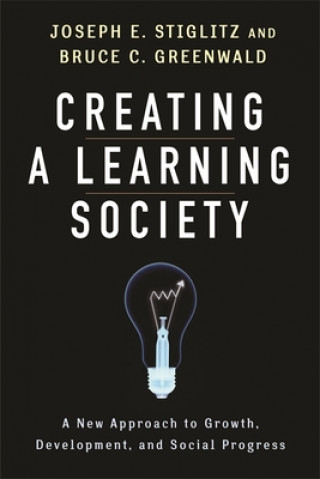
Kód: 02467718
Creating a Learning Society
Autor Joseph E. Stiglitz
It has long been recognized that most standard of living increases are associated with advances in technology, not the accumulation of capital. Yet it has also become clear that what truly separates developed from less developed c ... celý popis
- Jazyk:
 Angličtina
Angličtina - Väzba: Pevná
- Počet strán: 680
Nakladateľ: Columbia University Press, 2014
- Viac informácií o knihe

30.16 €
Bežne: 35.45 €
Ušetríte 5.29 €

Skladom u dodávateľa
Odosielame za 14 - 18 dní
Mohlo by sa vám tiež páčiť
-
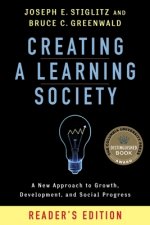
Creating a Learning Society
24.73 € -

Freefall
24.32 € -10 % -

Fair Trade For All
28.35 € -
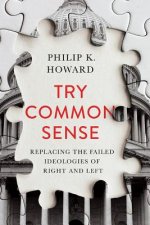
Try Common Sense - Replacing the Failed Ideologies of Right and Left
27.84 € -10 % -

Doing Good Better
12.16 € -14 % -

Why Nations Fail
12.86 € -

Bottom Billion
12.56 € -23 % -

Insight: Pre-intermediate Workbook
12.46 € -8 % -

Music and Manipulation
46.04 € -

Humans Need Not Apply
22.01 € -4 % -

Star Wars Padawan
16.68 € -16 % -

Encyclopedia of Automatic Musical Instruments
122.97 € -2 % -

Mythical Trickster Figures
56.70 € -

Numicon: Box of 80 Numicon Shapes (Grey)
52.48 € -

Numicon: 100 Square Baseboard
8.54 € -

Cure
12.06 € -22 % -

OCA Java SE 8 Programmer I Exam Guide (Exams 1Z0-808)
48.06 € -23 % -

Can't Hurt Me
27.04 € -

Kubrick, Stanley
15.37 € -

Stolen Focus
24.43 € -13 % -
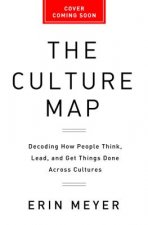
The Culture Map
26.03 € -15 % -

Stanley Kubrick
26.03 € -15 % -

Python Cookbook
54.99 € -15 % -

S Bohem a fašisty
11.05 € -30 % -
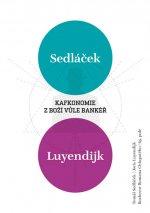
Kafkonomie
5.62 € -10 % -

Slepá mapa
13.97 € -11 % -

Klub nerozbitných detí
11.76 € -22 % -

Ako som vozil Nórov
15.78 € -22 % -

Druhá derivace touhy Člověk duše-vnější
12.16 € -12 % -

Soumrak homo economicus
4.92 € -4 % -

Homo Deus
19.10 € -21 % -

Zrada vzdělanců
12.76 € -12 % -

Proti tyranům
7.93 € -11 % -

Naše vlčice Flocke
12.46 € -15 % -

Mosty z kompozytów FRP
21.61 € -5 % -

Noch mehr lustige Geschichten
13.16 € -10 % -

Hračkář
13.46 € -10 % -

Mateří kašička a propolis
7.43 € -21 % -

Henryk Sienkiewicz ve světě politiky
10.85 € -21 % -

Kajakarstwo
12.36 € -8 % -

Ovlivňování a autonomie v psychoanalýze
9.24 € -6 % -

Poirot Collection. Nr.1, 3 DVDs
26.74 €
Darčekový poukaz: Radosť zaručená
- Darujte poukaz v ľubovoľnej hodnote, a my sa postaráme o zvyšok.
- Poukaz sa vzťahuje na všetky produkty v našej ponuke.
- Elektronický poukaz si vytlačíte z e-mailu a môžete ho ihneď darovať.
- Platnosť poukazu je 12 mesiacov od dátumu vystavenia.
Viac informácií o knihe Creating a Learning Society
Nákupom získate 76 bodov
 Anotácia knihy
Anotácia knihy
It has long been recognized that most standard of living increases are associated with advances in technology, not the accumulation of capital. Yet it has also become clear that what truly separates developed from less developed countries is not just a gap in resources or output but a gap in knowledge. In fact, the pace at which developing countries grow is largely determined by the pace at which they close that gap. Therefore, how countries learn and become more productive is key to understanding how they grow and develop, especially over the long term. In Creating a Learning Society, Joseph E. Stiglitz and Bruce C. Greenwald spell out the implications of this insight for both economic theory and policy. Taking as a starting point Kenneth J. Arrow's 1962 paper "Learning by Doing," they explain why the production of knowledge differs from that of other goods and why market economies alone are typically not efficient in the production and transmission of knowledge. Closing knowledge gaps, or helping laggards learn, is central to growth and development. Combining technical economic analysis with accessible prose, Stiglitz and Greenwald provide new models of "endogenous growth," upending the received thinking about global policy and trade regimes. They show how well-designed government trade and industrial policies can help create a learning society; explain how poorly designed intellectual property regimes can retard learning; demonstrate how virtually every government policy has effects, both positive and negative, on learning; and they argue that policymakers need to be cognizant of these effects. They provocatively show why many standard policy prescriptions, especially associated with "neoliberal" doctrines focusing on static resource allocations, impede learning and explain why free trade may lead to stagnation, while broad based industrial protection and exchange rate interventions may bring benefits, not just to the industrial sector, but to the entire economy. The volume concludes with brief commentaries from Philippe Aghion and Michael Woodford, as well as from Nobel Laureates Kenneth J. Arrow and Robert M. Solow.
 Parametre knihy
Parametre knihy
Zaradenie knihy Knihy po anglicky Reference, information & interdisciplinary subjects Interdisciplinary studies Development studies
30.16 €
- Celý názov: Creating a Learning Society
- Autor: Joseph E. Stiglitz
- Jazyk:
 Angličtina
Angličtina - Väzba: Pevná
- Počet strán: 680
- EAN: 9780231152143
- ISBN: 0231152140
- ID: 02467718
- Nakladateľ: Columbia University Press
- Hmotnosť: 1084 g
- Rozmery: 235 × 163 × 45 mm
- Dátum vydania: 24. June 2014
Obľúbené z iného súdka
-

Measure of Civilization
25.43 € -

Leading the Sustainable Organization
73.50 € -

Development: A Very Short Introduction
9.95 € -22 % -

Challenge for Africa
12.06 € -22 % -

Agroecology
40.92 € -15 % -
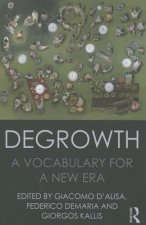
Degrowth
57.61 € -

Economic Development
17.89 € -

Silenced Rivers
80.64 € -

Regenerative Design for Sustainable Development
106.28 € -

Emerging Africa
12.06 € -22 % -

Social Entrepreneurship as Sustainable Development
90.39 € -

Museums, Heritage and International Development
228.65 € -

Development Theory
46.25 € -9 % -

Oxford Handbook of Economic Inequality
78.22 € -

Socio-Economic Development
81.44 € -

Mediatized China-Africa Relations
135.94 € -

Social and Solidarity Economy
118.04 € -

Food Security, Nutrition and Sustainability
68.87 € -

Collaboration for Sustainability and Innovation: A Role For Sustainability Driven by the Global South?
135.94 € -
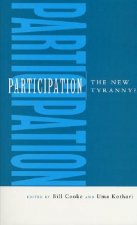
Participation
55.70 € -

Power and Participatory Development
38.60 € -
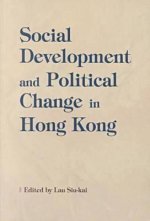
Social Development and Political Change in Hong Kong
46.95 € -

Designing and Building Mini and Micro Hydro Power Schemes
65.75 € -

Hornblower's Historical Shipmates
52.98 € -

Colombia
52.98 € -

Building with Lime Stabilized Soil
120.76 € -

After the Conflict
70.08 € -
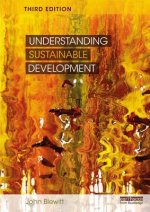
Understanding Sustainable Development
61.33 € -

Regional Governance and Policy-Making in South America
87.07 € -

Cuba and Its Neighbours
42.83 € -
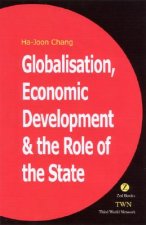
Globalisation, Economic Development & the Role of the State
57.81 € -

New Scramble for Africa 2e
96.93 € -

Food, National Identity and Nationalism
113.82 € -

Is Good Governance Good for Development?
71.47 € -

Why Doesn't Microfinance Work?
45.14 € -

Global Capital, National State and the Politics of Money
135.94 € -

Economic Analysis of Environmental Impacts
81.14 € -

Action and Knowledge
88.58 € -

Theories and Practices of Development
56.80 € -

Records of Oman 1867-1960 12 Volume Hardback Set Including Map Box
11354.81 € -

Theories of Development
70.48 € -

Companion to Development Studies
183.81 € -

Oxford Handbook of Global Studies
219 € -
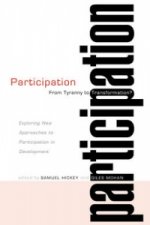
Participation
63.54 € -

Manual of Building Construction
83.95 € -

Senegal
22.21 € -

Sustainable Governance of Wildlife and Community-Based Natural Resource Management
68.87 € -

Law and Justice for Development
55.79 € -

Mice;Education/Devel Africa Lce
22.92 €
Osobný odber Bratislava a 2642 dalších
Copyright ©2008-24 najlacnejsie-knihy.sk Všetky práva vyhradenéSúkromieCookies


 21 miliónov titulov
21 miliónov titulov Vrátenie do mesiaca
Vrátenie do mesiaca 02/210 210 99 (8-15.30h)
02/210 210 99 (8-15.30h)